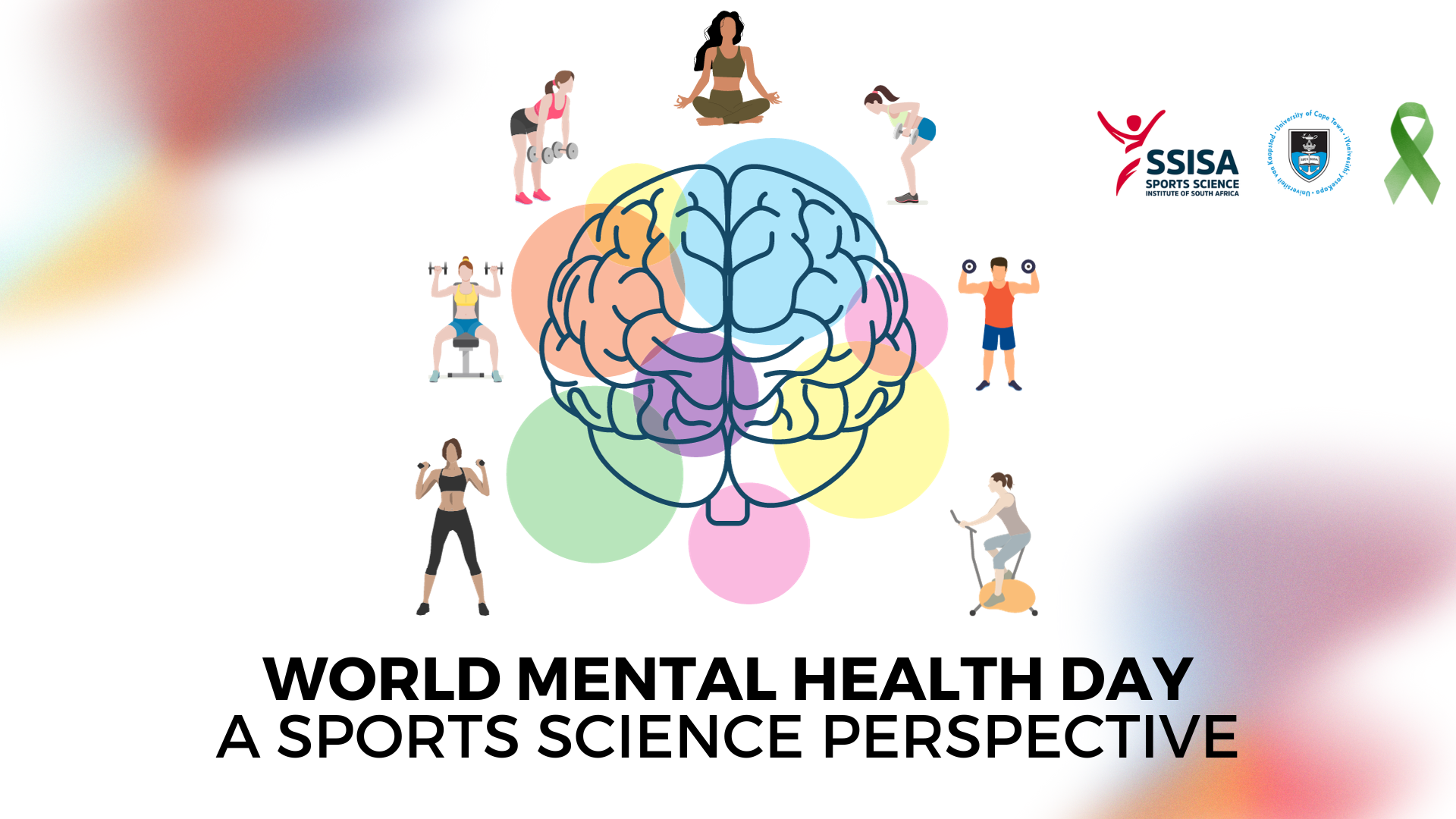World Mental Health Day: 10 October 2023

In SA, while access to public healthcare is free, waiting periods and specialist healthcare services can be costly. Exercise has shown positive results as a preventative and treatment modality in managing a myriad of chronic conditions (CDC). For mental health, exercise has also showed promise when coupled with general medical and psychiatric care (1). One of the more convenient and well-known contributors to obtaining relief from mental health issues is daily exercise and physical activity.
In recent years, daily exercise has been reported to be one of the more preferred methods employed as part of achieving mental health wellness due to its potential to reduce anxiety, depression, and negative mood, and simultaneously improving self-esteem and cognitive function. Dr Brock Chisholm, the first Director-General of the World Health Organization (WHO), was a psychiatrist and shepherded the notion that mental and physical health were intimately linked. He famously stated that “without mental health there can be no true physical health” (2). In South Africa, it is described that nearly one in three South Africans will suffer from a mental disorder in his or her lifetime (3). Unfortunately, it is reported that over 970m people globally live with a mental health disorder (4).
Exercise facilitates improved cognitive function and flexibility, in the reduction of symptoms for depression and anxiety through a process of neurogenesis in the hippocampus of the brain - which particularly refers to the process by which new nerve cells and neurons are generated (5,6). Exercise may serve as a mood enhancer, due to the release of endorphins and serotonin in the brain which provide that “feel good” feeling. According to the World Health Organization, physical activity includes play, games, sports, recreation, physical education, or planned exercise, in the context of family, school, and community activities. In order to improve cardiorespiratory and muscular fitness, mental health, bone health, and cardiovascular and metabolic health biomarkers (WHO)
- Children and youth aged 5–17 should accumulate at least 60 minutes of moderate- to vigorous-intensity physical activity daily.
- For adults aged 18 and over, should do at least 150–300 minutes of moderate-intensity aerobic physical activity; or at least 75–150 minutes of vigorous-intensity aerobic physical activity; or an equivalent combination of moderate- and vigorous-intensity activity throughout the week.
The scope of mental healthcare is slowly expanding as the benefits of exercise are more realized due to research taking place globally. Mental health service providers can provide effective, evidence-based physical activity interventions, with the help of exercise professionals (biokineticists, physiotherapists, coaches and personal trainers) for individuals with mental health disorders. These days, information about how exercise can improve mental health is readily and easily accessible and available. Though, research to date is not entirely conclusive, as there are a variety of benefits that regular physical activity and exercise poses for improved mental health such as (1):
- Improved sleep
- Better endurance, energy boost
- A sense of achievement
- A healthy appetite
- Stress relief, less tension, and mental fatigue
- Improvement in mood, less anger or frustration
- Focus in life and motivation
- Increased energy and stamina
- Reduced tiredness that can increase mental alertness
- Weight reduction
- Reduced cholesterol and improved cardiovascular fitness
- Better social life
- Having fun
It cannot be left unsaid that the benefits of exercise far outweigh inactive lifestyles, as exercise can be easily accessible. The type of exercise, physical activity and sport can vary in terms of being done as individuals, with a partner and groups (which include sport activities); contact and non-contact sports; or their emphasis on strategy, chance and physical skills. Consequently, physical activity, exercise and sport is neither homogenous, nor a standardised product, or experience. This means that the path of fulfilment through sport and exercise is wide enough for everyone, who wishes to explore this domain of physical activity. Complete creativity and freedom of movement is accounted for and allowed through exercise and sport.
Exercise is for everyone! Improving our mental health through exercise does not have to be painstaking. Small steps towards being more physically active will bring about positive changes physically, psychologically and emotionally. Participating in exercise activities provide a break from the demands of daily life. Exercise, presents a goal to aim for and a sense of purpose through exploiting movements in each component of fitness. With the freedom to choose the exercise most desired, it can be concluded that physical activity can improve mental wellbeing.
Yours in Sport,
Sports Science Institute of South Africa
References:
- Sharma A, Madaan V, Petty F. Exercise for mental health. J Psychiatry. 2006;8(2).
- Kolappa K, Henderson DC, Kishore SP. No physical health without mental health: Lessons unlearned? Vol. 91, Bulletin of the World Health Organization. 2013.
- Jack H, Wagner G. RG, Petersen I, Thom R, Newton R. CR, Stein A, et al. Closing the mental health treatment gap in South Africa: A review of costs and cost-effectiveness. Glob Health Action. 2014;7(SUPP.1).
- Vos T, Lim SS, Abbafati C, Abbas KM, Abbasi M, Abbasifard M, et al. Global burden of 369 diseases and injuries in 204 countries and territories, 1990–2019: a systematic analysis for the Global Burden of Disease Study 2019. The Lancet [Internet]. 2020 Oct;396(10258):1204–22. Available from: https://linkinghub.elsevier.com/retrieve/pii/S0140673620309259
- Mandolesi L, Polverino A, Montuori S, Foti F, Ferraioli G, Sorrentino P, et al. Effects of physical exercise on cognitive functioning and wellbeing: Biological and psychological benefits. Vol. 9, Frontiers in Psychology. Frontiers Media S.A.; 2018.
- Basso JC, Suzuki WA. The Effects of Acute Exercise on Mood, Cognition, Neurophysiology, and Neurochemical Pathways: A Review. Brain Plasticity. 2017 Feb 14;2(2):127–52.

